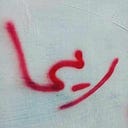My remarkable aunt, daughter of Lifta

My Amti Aida Najjar touched many lives — sometimes roughly, sometimes aggressively, sometimes tenderly, sometimes inspiringly, but always loudly and deeply.
And when death encroached on her carefully-composed life, she did not, for a second, consider going gently into that good night. She raged with the same force of will that had allowed her to manipulate her environment and the people in it to serve an idea of herself that was, as she once said, the color red.
Upon hearing the news of her illness, eventually diagnosed as multiple myeloma, I had travelled to Amman before Thanksgiving and spent several weeks with her. The enormity of this health setback (she had been a breast cancer survivor) slowly dawned on those who loved her, while she remained in fierce denial.
Nevertheless, the news of her death came as a shock wave at me. To put it more accurately, I received it as one would receive inconceivable news. It left me feeling bereft, with an indelible sense of loss, not just of her physical living breathing being, but also of her large and colorful personality and the physical locations in which that personality was embodied — her apartment in Amman, where I was always welcomed when I needed a place to stay, where I was made to feel needed in return, her childhood village of Lifta, which she passed on to us, as one would a precious gift, the books she still wanted to write.
Up all night thinking of her, unable to sleep. Many images flit through my mind like an old film reel in need of repairs, fading in and out. I think of her in her cold grave and remember her saying to me once how she wished, in death, to be entombed cradled in her mother’s lap (her father Ali and my own mother Salwa are buried in currently unreachable Jerusalem). I said, leave room for me, and then I blurted out how I had almost responded with “inshallah” to her expressing a wish. I can still hear her prolonged laughter at the hilarity and inappropriateness of this linguistic tic. And when she retold the story, she improved it by relaying it as something I had actually said. Another reel: I see her at the clinic about to undergo a painful procedure, aching with every move, and still managing to charm the young doctor (by expressing interest in his marital status) into giving her broken body a long warm embrace.
I sit by the fire in Bloomington, Indiana, watching the snow fall through the window, far away from our Arab rituals that I know are ongoing in Amman and Jerusalem, rituals that give meaning to a life and give comfort to those left behind, especially my three equally wonderful surviving aunts.
Amti Aida had not married and had no children, but the line of close relatives, men and women, now grieving for her and proudly standing up to receive condolences at her azza (wake), is very long — Najjars and Hammoudehs from Lifta, Bseisos from Gaza, Abunimahs from Battir, Youneses from ‘Ar’ara, Toukans from Nablus, Annabs from Kafr Naja/Nablus, Kanaans from Anabta. The following telegram of condolence from Princess Haya Bint Al Hussein of Jordan is addressed to all of them — the word “aal آل” in Arabic means “house of”:

How my aunt would have relished such recognition! They will preserve her (our) Palestinian story, as well as her memory, her recollections and the oral history of other Palestinians that she has told so well.
Note: Aida Ali Ismail Najjar was a researcher, columnist and writer of best-selling books on Amman, the forcibly depopulated Palestinian village of Lifta (where she was born and lived until the Nakba) and Jerusalem. Her groundbreaking book on the history of journalism in Palestine, ‘Press of Palestine and the national movement in half a century (1900–1948)’, is essential reading at many universities around the Arab world.
Below is a slide-show compilation by Elena Bseiso arranged to the tune of Fairuz “Bint El Shalabiya”, which echoes the title of Aida Najjar’s book on Jerusalem. See many photos from her personal album, spanning the course of her life — as a student in Cairo, Kansas and New York, as a UN diplomat and distinguished researcher and writer — and much more.
.
https://youtu.be/HDAi4WlmqNY
Below is Aida Najjar giving a lecture (Arabic) in 2017.
______________________
